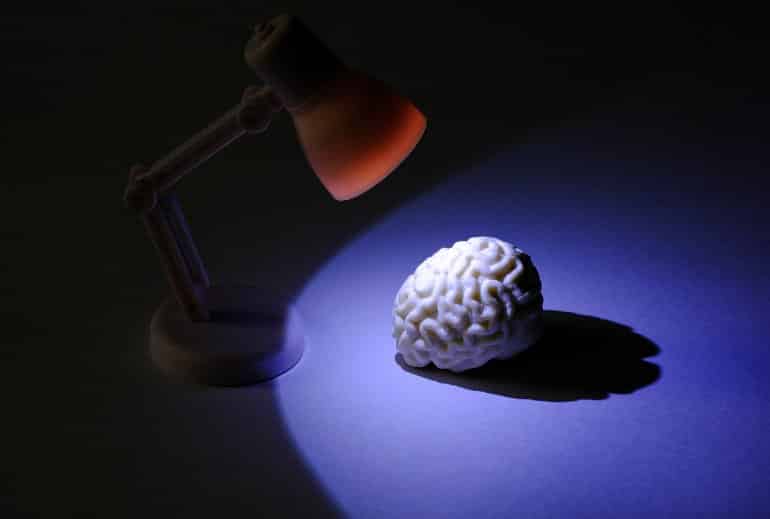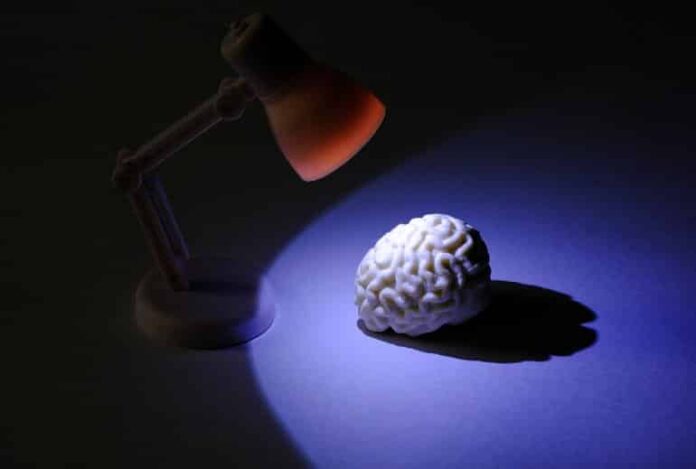[ad_1]
Summary: Higher activity in the anterior prefrontal cortex was associated with more resilience to the effects of post-traumatic stress.
Source: Radboud University
Why does one person develop post-traumatic symptoms after a stressful event while another does not? Police officers with higher activity in the anterior frontal brain area appear to respond more resiliently to a traumatic event. Brain researchers from the Donders Institute and the Behavioural Science Institute discovered this in collaboration with the Police Academy. An article on their study will be published on 18 February inNature Human Behaviour.
The study involved 340 police officers from all over the Netherlands. “We tested them for the first time during the early stages of their police training, and again after 16 months. During that time period, police officers usually experience traumatic events for the first time. While interning as part of their training programmes, they are often involved as first aid providers when emergency services are requested. As a result, they are very likely to see stressful events, such as accidents, someone who has died or is severely confused, or they are confronted with violence,” says lead author Reinoud Kaldewaij.
Table of Contents
Emotional control
When dealing with stressful or challenging situations, it is important that we try to regulate our automatic emotional responses. Kaldewaij wondered whether the degree to which we can control our emotional behaviour is related to differences in stress susceptibility in our brain.
To measure the degree of control police officers have over their automatic emotional behaviour, Kaldewaij used the ‘approach-avoidance task’. This is a frequently used computer task whereby subjects are shown pictures of angry and happy faces, which they can approach or avoid by moving a joystick towards or away from them.

Our natural tendency is to avoid angry faces and approach happy faces, but reversing this against our intuition requires control over our automatic emotional responses. The anterior prefrontal cortex, an area located at the front of our brain, is known to be involved in this emotional control.
Resilience after traumatic events
The police officers were placed in an MRI scanner, and Kaldewaij measured the activity of their anterior prefrontal cortex while they performed the approach-avoidance task. “About a year and a half after this measurement, we contacted the officers again and interviewed them to determine the extent to which they showed symptoms related to post-traumatic stress, such as poor sleep, avoidance of thoughts about the event, and negative thoughts and mood.”
The officers with higher activity in their prefrontal cortex appeared to have developed fewer symptoms after experiencing a traumatic event. “It was already known that this brain area is important for dealing with acute stress, but apparently this also applies to resilience against post-traumatic stress.”
Pre-existing resilience to stress
“In research into stress, the question is always whether differences between people, such as differences in brain activity, are a cause or a result of stress-related disorders such as PTSD. With this study we have demonstrated the pre-existence of a stress resilience factor in the brain. That is the power of a longitudinal study, where you examine people both before and after a traumatic event. However, we still do not know whether this resilience factor against stress can be trained or not.”
About this PTSD research news
Source: Radboud University
Contact: Reinoud Kaldewaij – Radboud University
Image: The image is in the public domain
Original Research: Closed access.
“Anterior prefrontal brain activity during emotion control predicts resilience to post-traumatic stress symptoms” by Reinoud Kaldewaij, Saskia B. J. Koch, Mahur M. Hashemi, Wei Zhang, Floris Klumpers & Karin Roelofs. Nature Human Behavior
Abstract
Anterior prefrontal brain activity during emotion control predicts resilience to post-traumatic stress symptoms
Regulating social emotional actions is essential for coping with life stressors and is associated with control by the anterior prefrontal cortex (aPFC) over the amygdala.
However, it remains unclear to what extent prefrontal emotion regulation capacities contribute to resilience against developing post-traumatic stress disorder (PTSD) symptoms. Here, 185 police recruits who experienced their core trauma in the line of duty participated in a prospective longitudinal study.
Pre- and post-trauma, they performed a well-established functional magnetic resonance imaging (fMRI) approach–avoidance task, mapping impulsive and controlled emotional actions. Higher baseline aPFC, dorsal and medial frontal pole activity was related to lower PTSD symptoms after trauma exposure. aPFC activity predicted symptom development over and above self-reported and behavioural measures. Trauma exposure, but not trauma symptoms, predicted amygdala activation at follow-up.
These findings suggest that prefrontal emotion regulation activity predicts increased resilience against developing post-traumatic stress symptoms and may provide fruitful starting points for prediction and intervention studies.
[ad_2]
Source link













